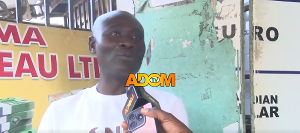A stakeholders’ workshop to discuss measures to address deforestation and boost cocoa production in the Ahafo Region has been held at Goaso.
It was also to share and discuss outcomes of a study on socio–economic and ecological assessment of the Asunafo- Asutifi cocoa production area for clear understanding of risks, issues, challenges and opportunities for the development of a sustainable cocoa production landscape.
The workshop was jointly organized by Proforest, Forestry Commission, COCOBOD and World Cocoa Foundation, to provide a platform for the stakeholders to work together towards the development of a management and investment plan to address deforestation, low cocoa production, protection of forest reserves and promote climate smart agricultural activities in the area.
Over 80 representatives from Asunafo North Municipality, Asunafo South and Asutifi North Districts in the Ahafo Region, which have been designated as the Asunafo- Asutifi Hotspot Intervention Area (HIA) attended the workshop.
Dr. Augustus Asamoah, Principal Project Manager of Proforest speaking at the workshop, said Ghana was taking steps to address deforestation and its impact on cocoa production in cocoa producing areas through the Ghana cocoa forest REDD Program (GCFRP).
This programme, according to him, represented the largest fully- functional jurisdictional programme in Ghana that provided the framework for engaging multiple government institutions, private sector, civil society, traditional authorities and community representatives, to address key deforestation and forest degradation issues as well as community livelihood improvement, while building climate resilience in the cocoa sector.
Dr. Kwakye Ameyaw, Technical Advisor to Chief Executive of Forestry Commission, (FC) asked members in forest fringe communities to lead the fight against deforestation in the country’s forest reserves since it contributed to climate change and impacted negatively on cocoa production.
He said community members, especially farmers, had a critical role to play in fighting illegal operators in forest reserves by reporting them to the Commission for their arrest and prosecution.
Dr. Ameyaw, pointed out that the government alone cannot fight the menace unless community members who lived with the perpetrators took bold decisions to report them.
He said FC was working closely with all key stakeholders to address challenges in the sector to sustain the country’s forest.
Mr. Charles Sarpong Duah, Manager of the Climate Change Unit of the FC, appealed to traditional leaders and the media to take an active part in the campaign and educate the public on the negative impact of deforestation and the need to plant trees in their localities.
Dr. Shalom D. Addo Danso, Lead Consultant of KABSTREK Consult, said unsustainable agricultural activities, especially for cocoa and food crop production had been identified as one of the most important drivers of deforestation.
He mentioned ageing farmer population, ageing cocoa farms, land tenure issues, low involvement of the youth in cocoa production, excessive hunting, pollution of water bodies, illegal logging and farming in forest reserves, as some of the challenges facing cocoa production in the area.
Dr. Addo Danso advocated for improved law enforcement by the Forestry Commission and other law enforcement agencies to reduce the impact of illegal activities in the forest to sustain key ecological, cultural and historical habitats.
He stressed on the need for a massive reforestation program to rehabilitate the forest reserves in the landscape.
Dr. Addo Danso also called for the training of farmer groups, traditional leaders and local government leaders to adopt beneficial and climate- smart cocoa farming to sustain production.
Mr. James Parker, Project Manager of Proforest, said outcomes from the workshop and follow-up actions would be used to finalize the management and investment plan for the Asunafo- AsutifiI HIA.
He said the development of the plans would be financed by UK aid through the Forest, Governance, Market and Climate (FGMC) program and eight cocoa buying companies, while its implementation would be done through the HIA governance structure, which had been established by Forestry Commission through Tropenbos International.
Business News of Wednesday, 25 November 2020
Source: GNA

















